2-Day Growing Up Anxious (Digital Seminar)
Description:
We all want kids to be successful, safe, and secure, but such good intentions are having unintended consequences.
Three societal ingredients…. a hyper-academic mindset, preoccupation with safety, and a tech-obsessed society… are fueling childhood anxiety, leaving kids fearful, avoidant, and ill-equipped for adulthood.
Watch child psychologist Steve O’Brien, Psy.D., for 2 days filled with practical strategies as he presents a three-level treatment model for childhood anxiety using targeted, evidenced-based therapies to:
- Connect with and “rewire” anxious children and families
- Provide child-friendly instruction about anxiety and the brain
- Promote self-expression and healthy coping in shut-down kids
- Reduce debilitating social anxiety in adolescents
- Treat technology-related worries, obsessions, and compulsions
- Develop anxiety-free safety plans for distressed kids and parents
Don’t miss out on this cutting-edge program for equipping and empowering kids to not only cope with anxiety.
but to thrive as they develop a growing sense of both competence and confidence!
Outline:
Firstly, GROWING UP ANXIOUS – 3 KEY INGREDIENTS
EARLY EMPHASIS ON HIGH ACHIEVEMENT AND PERFORMANCE
- Emotional costs of a hyper-academic mindset and over-evaluation
- Performance philosophy pitfalls: perfectionism and procrastination
- Consequences of strong individualism: anti-collaborative attitudes
Secondly TECHNOLOGY IMMERSION: PLUGGED IN BUT TUNED OUT
- Tech-savvy, socially naive
- Fearless online, fearful offline
- Gratification-dependent, grit-deficient
Thirdly PREOCCUPATION WITH SAFETY AND POTENTIAL THREAT
- Overprotected but underdeveloped….socially and emotionally
- How dysregulated adults promote anxiety-ridden kids
- Failure to launch: Why “adulting” is difficult and frightening
Fourthly INTEGRATING EVIDENCED-BASED TREATMENT APPROACHES
- Behavior therapy/modification
- Cognitive-behavior therapy
- Family-focused/systemic therapy
- Interpersonal therapy
- Play/art/creative therapies
- Mindfulness-based therapies
Then GUIDELINES FOR RAPPORT-BUILDING AND CLINICAL INTERVIEWING
- Semi-structured parent interviews: Combining engagement with efficiency
- Developmentally-sensitive child interviews: Integrating observation, play and dialogue
- Parent consultation: Constructing a framework for parental involvement
Additionally PSYCHOEDUCATION FOR PARENTS AND KIDS: THE FIRST INTERVENTION
- Teaching parents about their child’s overactive brain
- Giving a child-friendly “tour of the brain”
- Highlighting the mind-body connection
- Social Anxiety Disorder
- Evaluating cognitive versus physiological features
- Cognitive-behavioral methods for getting teens out of their heads and into the world
- Role-playing and free association games for promoting real-time interaction
- Desensitization strategies for combating social avoidance
Lastly BIOPSYCHOSOCIAL TREATMENT: THE SECOND INTERVENTION
- “LOWERING THE TEMPERATURE, SLOWING THE PACE”
- Reducing Emotional Intensity and Conflict for a Calmer Environment
- Healthy habits and daily transition rituals
- Self-expression and support-seeking skills
- 3 R’s of anxiety management: Recognize, Relax, Redirect
TARGETED TREATMENT FOR MAJOR (DSM-5™) ANXIETY DISORDERS: THE THIRD INTERVENTION
- Generalized Anxiety Disorder
- Identifying manifestations of chronic worry
- Cognitive strategies for discrediting the “what-if? person”
- Self-talk for empowering the “helpful coach”
- Cognitive-behavioral redirection for worries
- Paradoxical relaxation for overachievers
- Separation Anxiety Disorder
- Assessing psychological and somatic components
- Pre-treatment preparation: It’s all about the plan
- Developing a treatment-support team
- Action plans for high-distress episodes
- Strategies for distressed/enmeshed parents
- Phobias and Panic Disorder
- Cognitive and physical/physiological symptoms
- Essential ingredients for desensitization
- “Challenge ladders” for gradual exposure
- Planning-for-panic strategies
- Obsessive-Compulsive Disorder
- Variations in obsessive-compulsive symptomatology
- “Brain challenges” for rigid perfectionists
- Mindfulness strategies: “Balloon breathing and wet noodles” for high-threat perceivers
- Controlled withdrawal and replacement for tech-addicts
CO-OCCURRING DISORDERS: TREATMENT IMPLICATIONS, RISKS, AND LIMITATIONS
- Depressive Disorders
- Attention-Deficit/Hyperactivity Disorder
- Autism Spectrum Disorders
ANXIETY-RIDDEN AT SCHOOL: CONSIDERATIONS AND CLASSROOM APPLICATIONS
- Relationship-building with distressed/disruptive kids
- Dealing with the (dreaded) 3 D’s:
- Defiance, Disrespect, Disruption
- Creating a calm, responsive classroom
- Reducing task avoidance and test anxiety
- Managing compulsive technology usage
- Identifying, intervening, and preventing bullying
- Tips for (post) pandemic adjustment
MEASURING TREATMENT PROGRESS
- Evaluating symptomatology and functional level
- School consultation and recommendations
- Medication: Guidelines for discussion and referral
NLP online course
So what is NLP?
Firstly, NLP stands for Neuro-Linguistic Programming. Secondly neuro refers to your neurology;
Thirdly linguistic refers to language however, programming refers to how that neural language functions.
As a result,In other words, learning NLP is like learning the language of your own mind!
Moreover, NLP is the study of excellent communication–both with yourself, and with others.
It was developed by modeling excellent communicators and therapists who got results with their clients.
NLP is a set of tools and techniques, but it is so much more than that.
In conclusion, It is an attitude and a methodology of knowing how to achieve your goals and get results.
Preview Information:
Original Page
Archive Page


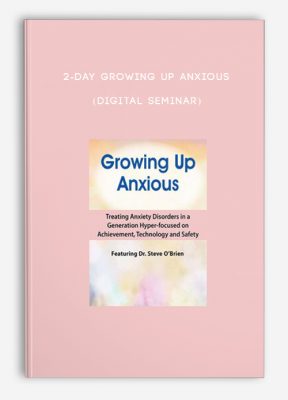
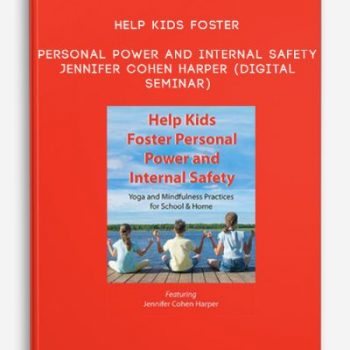
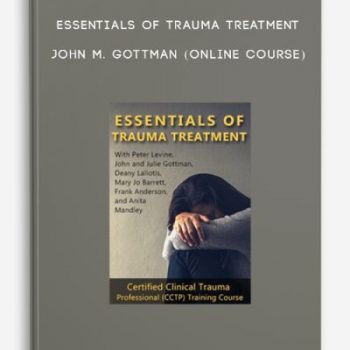
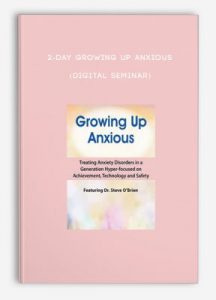
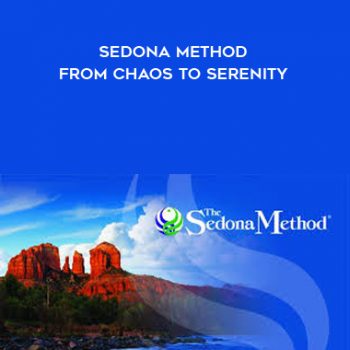



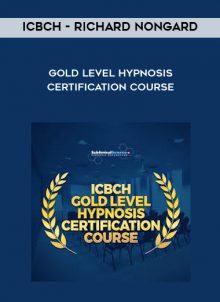

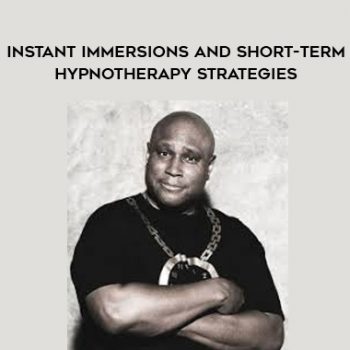

Lord –
This is Digital Download service, the course is available at Vincourse.com and Email download delivery.